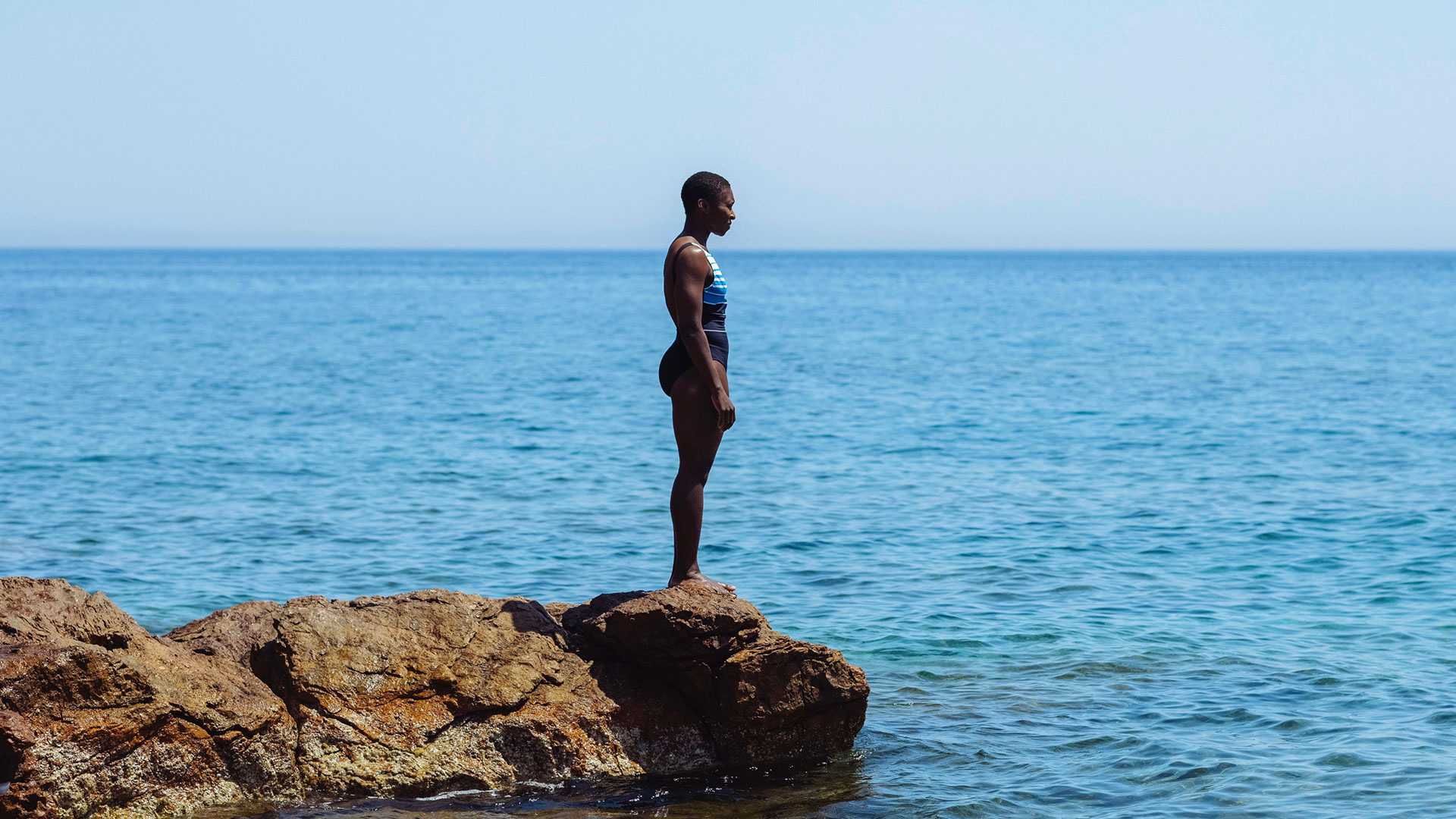Singaporean director Anthony Chen’s English-language debut follows a West African refugee, Jacqueline (Cynthia Erivo), who washes up on a Greek island homeless, cashless, and friendless. She doesn’t speak until ten minutes into Drift, taking in her surroundings, plagued by a fear that’s nestled deep within her. Understandably, she’s scared of everyone and everything, living in a cave, eating whatever she can find, making money by washing tourists’ feet on the beach.
Chen sees Jacqueline as an other, lacking the empathy necessary to tell this weighty story, inexcusably using the camera to shoot her as someone who doesn’t belong. It feels less like a storytelling technique than a major formal misstep. Any empathy comes across as coded, the vagueness of the narrative only cementing this absence.
Coming from a script by Susanne Farrell and Alexander Maksik, Drift rarely individualizes its main character, quietly watching her as she struggles to survive. Chen hopes to craft a meditative drama. Instead he has made a shallow film, a catch-all of refugee stories that’s supposed to contain resonance. It’s a lump sum of experiences, sans uniqueness. It’s looking to be a powerful exercise, but in reality is a thin viewing, believing that all trauma is one in the same, underbaked in research and understanding.
Erivo does little as Jacqueline, storing up her energy for an unearned speech in the film’s third act. She wanders about the island, having flashbacks of the life that’s been taken away from her. Subdued to a fault, Erivo cannot escape the limitations of the character. When her chance inevitably comes, her outburst is nonsensical. The viewer doesn’t feel a flood of emotions; a confused, sour look seems more apt.
Alia Shawkat resuscitates the film as Callie, a tour guide who encounters and befriends Jacqueline. They enter into a friendship based on Callie’s capacity to provide kindness. Even their interactions come off as trite, being forced together by loneliness with little to talk about. Regardless, Shawkat is wonderful in this role, and the film’s consistently better with her onscreen.
Using flashbacks to tell Jacqueline’s story, Chen shoots this time of her life with color and vibrancy. Jacqueline, the daughter of a Liberian government officer, meanders through the days, sheltered from the death surrounding her until that violence comes home. She’s seen enjoying her schooling in London and being friends (or possibly more) with another upper middle class student, giving Honor Swinton Byrne the chance for an extended cameo. All of it is a composite, a hollow retelling of her life. There isn’t any connective tissue to Jacqueline because she never becomes a real person. The details of her life, past and present, are generalized, torn from headlines, fictionalized retellings, and historical examples that contain more singular stories.
Chen’s film doesn’t contain the care needed for this story, wasting the talent of Erivo in a role that underserves her already-known abilities. The script holds much of that fault for attempting to capture the totality of West African politics and the entirety of the refugee experience into a single distant, empty character. It’s ill-advised and unconsidered, forgetting to add a semblance of thoughtfulness.
Drift premiered at Sundance 2023.

